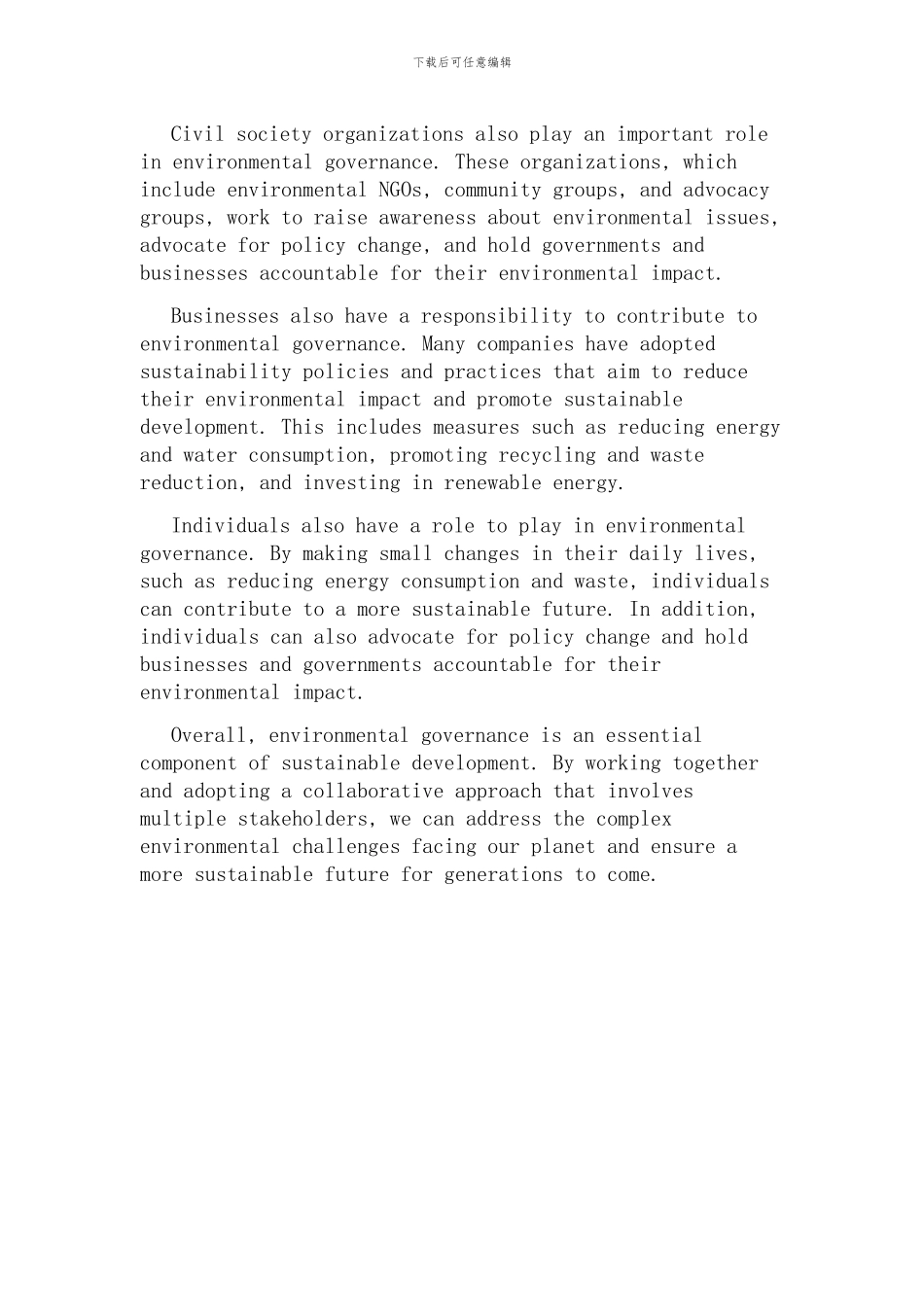下载后可任意编辑治理环境英语Environmental governance refers to the process of designing and implementing policies and regulations that aim to protect the environment and promote sustainable development. It involves a range of actors, including government agencies, civil society organizations, businesses, and individuals, working together to address environmental challenges such as climate change, pollution, and biodiversity loss.One of the key challenges in environmental governance is the complexity of the issues at hand. Environmental problems are often interconnected and have far-reaching impacts that extend beyond national boundaries. This requires a coordinated and collaborative approach that involves multiple stakeholders working together to find solutions.Another challenge is the need to balance environmental protection with economic development. While environmental protection is essential for ensuring the long-term sustainability of our planet, economic development is also important for improving the livelihoods of people and creating opportunities for growth. Achieving this balance requires careful planning and a focus on sustainable development that considers the needs of both people and the environment.To address these challenges, governments around the world have developed a range of policies and regulations aimed at promoting environmental sustainability. These include measures to reduce greenhouse gas emissions, protect biodiversity, and promote renewable energy. In addition, many governments have established environmental agencies and regulatory bodies to oversee the implementation of environmental policies and regulations.下载后可任意编辑Civil society organizations also play an important role in environmental governance. These o...

